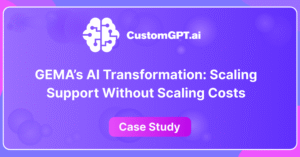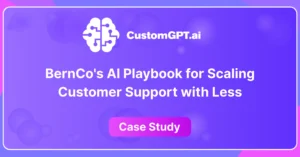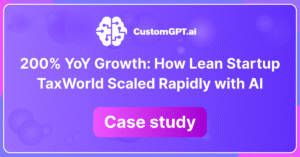About VdW Bayern DigiSol
VdW Bayern DigiSol GmbH is the digital innovation subsidiary of VdW Bayern e.V., the Association of the Bavarian Housing Industry. As the collective voice for more than 500 public, cooperative, municipal, and church-affiliated housing organizations across Bavaria, VdW Bayern plays a critical role in shaping housing policy and operational standards for the region’s social housing sector.
Operating at the intersection of public service, real estate, and digital transformation, VdW Bayern DigiSol is uniquely positioned to test and implement AI in a highly regulated and impact-sensitive industry. Its team supports member organizations in modernizing processes, navigating regulatory complexity, and leveraging new technologies for greater efficiency and service quality.
Challenge
VdW Bayern faced mounting pressure to digitize how legal and regulatory knowledge was accessed and applied within the housing sector. Specific challenges included:
- Fragmented Knowledge Access: Housing professionals were navigating thousands of documents manually, resulting in long turnaround times for even routine inquiries.
- Staffing Constraints: Many member organizations lacked the legal or administrative resources to interpret complex frameworks quickly.
- AI Skepticism: With prior tools failing to deliver meaningful results, AI solutions had to provide real-world value early on.
- Accuracy Requirements: Regulatory compliance and trust required minimizing hallucinations and ensuring every response was backed by verifiable sources.
Solution
The solution was the launch of WohWi AI, an AI-powered assistant embedded directly into VdW Bayern’s public-facing knowledge site (wohwi-ki.de). Powered by CustomGPT.ai, the assistant was:
- Trained on ~25M tokens from 3,620 internal documents, ensuring deep industry context and specificity.
- Deployed rapidly, with full implementation in under two months, thanks to CustomGPT.ai’s no-code platform.
- Fully source-backed, pulling directly from source material and showing citations for each answer to enhance transparency.
- Designed for scale, with role-specific prompts, access management, and ready-to-go scalable infrastructure.
Users could query the assistant for legal interpretations, draft templates, or compliance guidance—examples included:
- “What is a §34 zone in connection with urban development plans?”
- “As a small cooperative, am I subject to CSRD?”
- “Create a letter; invoice for a key order attached.”
VdW Bayern DigiSol Results
The WohWi AI initiative rapidly demonstrated value:
- Productivity Gains: Document creation tasks that took 45+ minutes now required 15–20 minutes—cutting documentation time by more than 50%.
- High-Volume Service: Over 7,000 questions were posed across 2,000 conversations in six months.
- Strong User Satisfaction: 84% of user interactions received positive feedback.
- Trustworthy Answers: With all responses backed by internal documents, skepticism around hallucination and data misuse was significantly reduced.
Why It Worked
- Sector-Specific Training: AI grounded in 3,600+ proprietary housing documents.
- Transparent Outputs: Every answer was sourced and traceable.
- Zero Engineering Burden: DigiSol could configure, test, and iterate independently.
- Immediate Value: From day one, the tool reduced time to action for housing staff.
Conclusion
VdW Bayern’s WohWi AI proves that generative AI, when carefully scoped and responsibly deployed, can deliver transformative results in even the most compliance-sensitive industries. By embedding intelligence directly into sector workflows, the organization has established a scalable model for digital enablement across public housing in Germany—and potentially, the broader EU.


